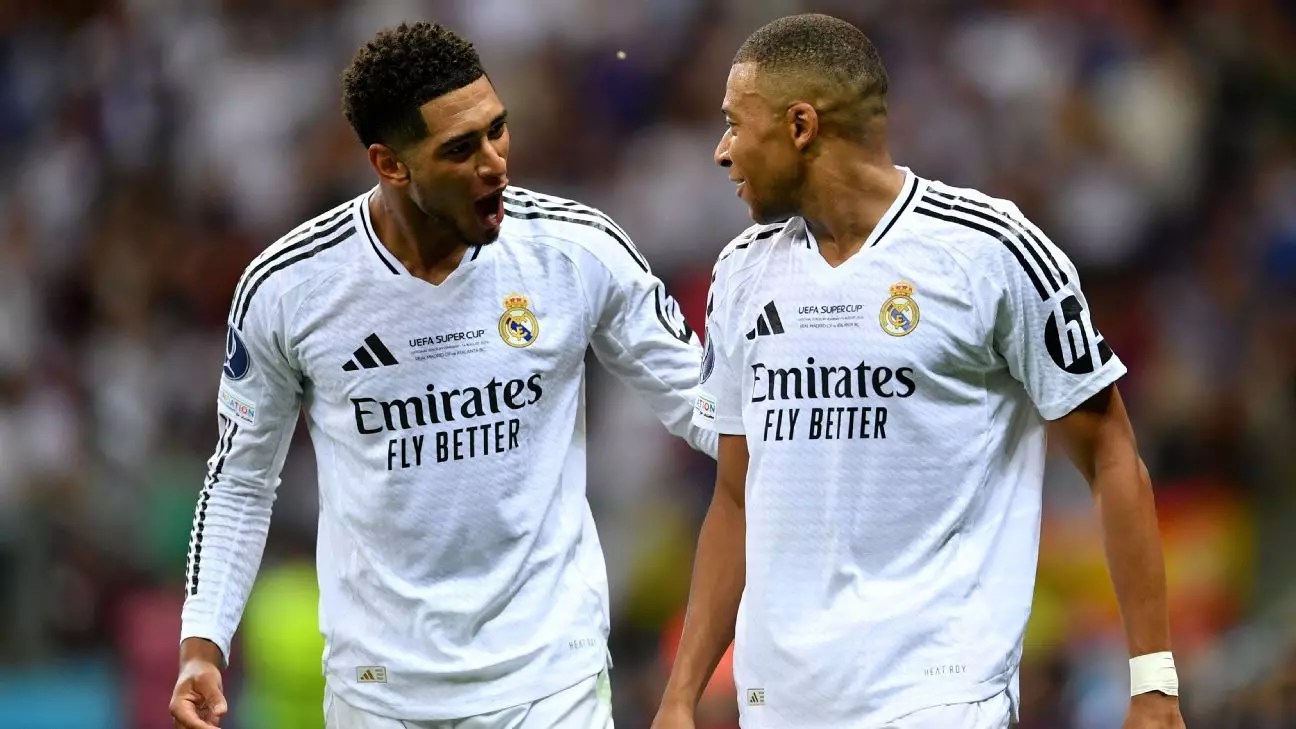In the high-pressure atmosphere of professional football, decisions made on the pitch can often be scrutinized intensely. The recent match between Real Madrid and Getafe showcased a pivotal moment that has sparked various interpretations among fans and pundits alike. At the center of this incident was Kylian Mbappé, the French striker who opted to pass up a penalty kick opportunity in favor of his teammate, Jude Bellingham. Carlo Ancelotti, Real Madrid’s head coach, defended Mbappé’s choice, framing it as a notable act of selflessness rather than a sign of hesitance or weakness.
Ancelotti’s perspective highlights an essential aspect of team sports: the importance of altruism among players. In the 30th minute of the match, when Real Madrid was awarded a penalty, Mbappé showed remarkable maturity and team spirit by allowing Bellingham to take the shot — a move that Ancelotti referred to as “a great act of altruism.” This perspective is especially vital in a sport where individual accolades often overshadow collective efforts. Leaders on the pitch must occasionally prioritize the team’s success over personal glory, and Mbappé’s decision could be seen as a step in that direction.
While some might argue that an established star like Mbappé should take every opportunity to score, particularly after facing criticism for his recent performances, Ancelotti’s interpretation resonates with the inherent values of teamwork. It indicates a willingness to put the team first, which can foster a supportive environment in the locker room, ultimately benefiting the entire squad.
Mbappé’s situation in this match also sheds light on the immense pressure players face at elite levels. After only scoring twice in his last nine games and missing a penalty during a crucial Champions League match against Liverpool, expectations were notably high. Critics might perceive his decision to pass on the penalty as indicative of insecurity, especially given the scrutiny surrounding his form. However, Ancelotti emphasized that what could be viewed as hesitation was, in reality, an expression of selflessness and responsibility. This nuanced understanding of player psychology is crucial for coaches and managers hoping to maximize their squad’s potential while mitigating the pressures players face.
Moreover, the fact that Bellingham converted the penalty into a goal only further exemplifies the positive outcome of Mbappé’s decision. This moment can serve as an example to other players: trusting teammates can lead to collective success, and an individual does not need to bear the burden alone.
Another interesting angle to consider is the evolving dynamic within the squad. Ancelotti’s comments indicate that both players are essential to Real Madrid’s success, and he acknowledged the growing complementary relationship between Mbappé and Bellingham. Bellingham, having faced his own drought earlier in the season, has found his scoring touch recently, and it’s clear that the improved synergy between the two forwards has bolstered Madrid’s attacking prowess.
Ancelotti pointed out that the emergence of Bellingham’s capabilities has been enabled by the positioning and movements of other players, including Mbappé. By leveraging each player’s unique strengths, the team is likely to perform better in front of goal. This sentiment not only highlights the importance of individual talent but also the impact of that talent on overall team dynamics.
As Real Madrid eyes its place at the top of La Liga, the importance of teamwork will only grow. They currently trail league leaders Barcelona, and with a crucial match against Athletic Club on the horizon, maintaining this collective ethos becomes paramount. The performance against Getafe, underscored by Mbappé’s selfless act, demonstrates that the group is capable of rising to the occasion, provided they remain unified in purpose.
Ancelotti’s defense of Mbappé illustrates a broader narrative within football — the delicate balance between individual talent and team cohesion. As the season progresses, players and fans alike will be watching to see how this dynamic evolves, especially as Real Madrid competes not just for trophies, but for a robust, supportive team culture.


Leave a Reply